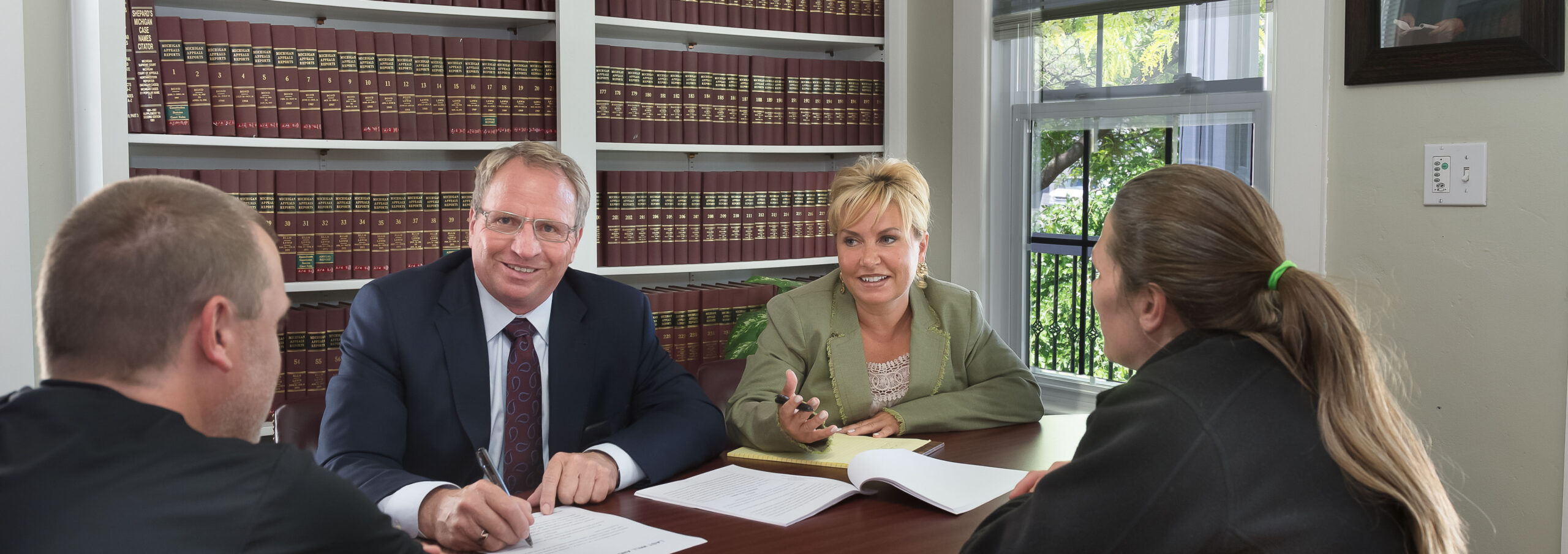
For more than 60 years, the skilled attorneys at our firm have guided individuals and families in Rochester Hills, Oakland County and communities throughout southeast Michigan through the complexities of estate planning, helping to ensure our clients have the estate plan that fits their needs and is done right.
We can explain the importance of each estate planning tool, including:
Your last will and testament – or just simply your will – is the document most people think of when they hear the term estate plan. Wills are an official way for people to express their preferences regarding their property and assets, particularly who they would like it disseminated to after they die and how much.
Dying without a will can be problematic for your family members because it sends your estate into intestate succession, which is a process by with state law determines how your property and assets will be divided and who it will go to.

Trusts allow you to control an inheritance by managing when and how a beneficiary receives the distribution.
There are a variety of trusts available, including special needs trusts – which are set up for beneficiaries who have disabling conditions and require long-term health care or assistance – and living trusts – which can be set up to help heirs avoid the complexities of the probate process.
If you become ill or incapacitated and can’t make the decisions regarding your estate or your health care, you would likely want someone to step in, on your behalf, to take care of things. By establishing powers of attorney, you give someone the power to make decisions that are in your best interests.
There are two types of powers of attorney; a durable power of attorney to give someone the ability to make financial and legal decisions on your behalf; and a power of attorney for health care decisions and directives for end-of-life wishes.
No parent ever plans on dying at the same time as their spouse, which is why many parents fail to establish a guardianship for their child. This is an incredibly important estate planning document, however, because it makes another person a guardian over the child. A guardian has the power to make decisions concerning the child’s well-being.
Guardianships are also established in situations where an adult becomes incapacitated without having first established durable power of attorney.
Naming an executor, also known as a personal representative, under the will is a necessary part of estate planning. The executor or personal representative will manage the administration of the will. Executors (personal representatives) have the legal responsibility to manage all financial affairs and asset distribution of the deceased individual.
Whether you’re ready to start making an estate plan or have questions about the tools you need, the compassionate lawyers at Bebout, Potere, Cox & Bennion, P.C., are here to help. Contact us or call our office near Rochester Hills at 248-651-4114.
An estate plan outlines how your assets will be managed and distributed after your death. It helps protect your loved ones, minimize taxes, and avoid probate.
Essential documents include a will, trust, power of attorney, healthcare directive, and beneficiary designations.
You should review your estate plan every 3-5 years or after major life events, such as marriage, divorce, or the birth of a child.
A will distributes your assets after death and goes through probate, while a trust allows assets to bypass probate and provides more control over how and when beneficiaries receive them.
While it's possible to create an estate plan without a lawyer, working with an attorney ensures that your documents comply with state laws and your wishes are fully protected.
Bebout, Potere, Cox &
Bennion, P.C.
1460 Walton Blvd. Suite 105
Rochester Hills, Michigan 48309
Phone: (248)-651-4114
Fax: (248)-651-8923
© 2024 by Bebout, Potere, Cox & Bennion, P.C. All rights reserved. Disclaimer | Privacy Policy